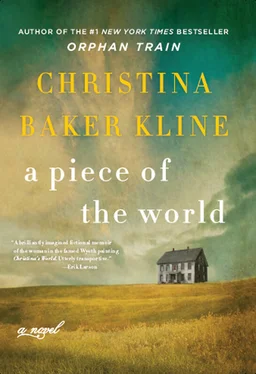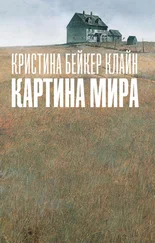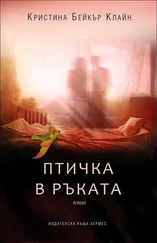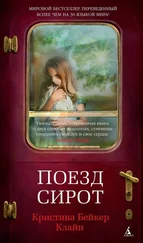DESPITE MY TREPIDATION about being in Boston, it’s exciting to be in a new place and easy enough to pretend that everything is all right—to chat amiably with Ramona as she fries eggs for breakfast, exclaim over her wedding gifts and the charming view of the cobblestoned street from the apartment window, play card games in the evenings at a square folding table in the living room with her and Harland and Sam. (Though I can’t help flinching when Harland suggests we play Old Maid.)
But just under the surface, my heart feels raw, painful to the touch. Beneath my smiles and nods and exclamations, I drift through each day like a ghost, silently keening for what might have been. Here, in Harvard Yard, Walton and I might have rested on a park bench. At Jordan Marsh Department Store we would have selected furniture and dishes. On the banks of the Charles we’d spread a quilt for a picnic and I’d lean back against his chest, watching the rowers go by. At night I fall into bed exhausted, overwhelmed by a grief so overwhelming that I can hardly breathe.
In spite of my best efforts, Ramona isn’t fooled. One morning she says, apropos of nothing, “It was brave of you to come.” The two of us are sitting at the breakfast nook eating soft-boiled eggs in china cups and toast propped in a silver rack. Sam and Harland have gone for a stroll.
“I’m happy to be here.”
She takes a sip of coffee. “I’m glad. It couldn’t have been an easy decision to make the trip.”
“No,” I admit. “But Sam insisted.”
“I know. He told me. But—you are having a nice time, aren’t you?”
I nod, buttering my toast. “Of course, a lovely time.”
“I want to tell you, Christina . . .” She sets down her spoon. “You must be wondering. Walton lives in Malden. He rarely comes into the city these days.”
I look in her eyes. “I was wondering.”
“I hope that sets your mind at ease.”
“Does he know I’m here?”
“I told him. I felt I had to. In case . . .”
“It makes sense. You’re friends.” I can hear the bitter edge in my voice.
She bites her lip. “Family friends. From childhood. It’s hard to just cut people off . . . even though . . .” Shaking her head, she says, “I don’t know how to explain it. I feel like a traitor. I know how painful it was for you. He behaved abominably.”
Ramona seems so sincerely distressed that I feel a trickle of empathy for her. “You don’t have to explain. I understand.”
“Do you?” she says hopefully.
“The past is past.”
I know it’s what she wants to hear. She smiles, clearly relieved. “I’m so glad you feel that way. I do too! And by the way, I know you said you aren’t interested, but Boston is filled with eligible bachelors.”
“Ramona—”
She flaps her hand. “Yes, yes, I know, you’ve hung up your rod. You can’t blame a girl for trying.”
A FEW DAYS later, Ramona says, “I can’t imagine it’s easy for you, Christina dear, all this perambulating around.”
She’s right. Every inch of Boston has been treacherous for me, from the cobblestoned streets to the crowded sidewalks. She and Sam and even bumbling Harland steer me into the elevator and down the steps, offering steady arms for our afternoon strolls. Even so, I trip and stumble. “I truly appreciate your help,” I tell her.
“Oh, well—it’s nothing. But it does seem, perhaps, that your situation is more acute than it used to be. I see you wincing sometimes. Are you in pain?”
I shrug. The pain has become part of me, just something I live with, like my pale eyelashes and skimmed-milk skin. But when I wake in the morning now, it takes several minutes of stretching and kneading before I can move my hands. And my feet often feel mired in glue; I can’t walk more than four or five steps on my own without losing my balance.
“Christina, Walton told me he had a conversation with you about this some time ago. He said he urged you to come to Boston to see if something could be done.”
I feel my face flush. “He didn’t have any business—”
She raises a finger. “This is not about Walton. I spoke with a doctor—a very good doctor—at Boston City Hospital, and he thinks they might be able to help. It wouldn’t be right away. Not this visit. We’d need to make an appointment. All I’m asking is for you to consider it. Look”—she sighs—“don’t you want to have a normal life, with normal opportunities? You refused before, and . . .”
Her unsaid words linger on the air. I know what she’s implying: that my unwillingness to consider treatment may have cost me the relationship. I feel a surge of anger. Yes—this was exactly what I feared at the time. That Walton’s feelings for me were conditional. That he was telling me to get better, or else.
But the anger subsides as quickly as it arose. It would be nice to have a normal life. I’m tired of pretending to be strong, of hiding the fact that even the smallest chores exhaust me. I’m tired of the bruises and scrapes and the pitying looks of people on the street. Maybe this doctor could actually help me. Who knows? Maybe he can even make me well.
“All right,” I tell Ramona. “I’ll consider it.”
She smiles. “Good! We just might get that leaky boat of yours patched up after all.”
NEWSPAPERS ARE FILLED with dispatches from the front. The Boston Globe reports that the United States is sending nearly ten thousand soldiers to France every day. In Cushing we heard occasional stories about boys who enlisted, or, after the Selective Service Act was passed last year, were drafted. (My farmer brothers, like many in our area, were exempt.) We listened to radio reports. But here the news is not an abstract event, happening far away. Walking across Harvard Yard, Sam and I come upon several thousand young men in blue regulation sailor suits, new recruits attending Radio School. Boston Common is lined with Red Cross tents, where volunteers collect and pack supplies to ship overseas.
When the suffragettes who’ve been picketing in front of the White House for more than two years are disparaged in opinion columns, Ramona and Eloise are incensed and talk about it at length. They know the names of some of the ladies, the arguments for why women should be given the vote. They talk about these events as if they have a stake in the outcome. As if they have a right—an obligation, even—to an opinion.
“But this has nothing to do with us,” I say.
“It has everything to do with us,” Ramona replies indignantly.
None of the tasks that fill my days in Cushing are relevant in Ramona’s world. It’s as if she’s playing house in her four-room apartment overlooking the street, four flights up, with no one to take care of but her well-meaning but slightly ham-fisted husband and plenty of money with which to do it. How different my life would be with electric lights and an indoor toilet, hot water that comes out of a faucet in the kitchen and the lavatory, gas burners on the stovetop that ignite with the flick of a match, cast-iron radiators that heat every room. If I weren’t spending all my time stoking the fire, maybe I, too, would know what’s going on in the wider world. Ramona attends the opera, the latest plays; she browses in the millinery store and the ladies’ shops. She has a girl (Ramona calls her that, though she’s older than us) who comes in twice a week to take the laundry, scrub the floors, change the bedding, dust the breakfront, and wash the dishes while Ramona sits at the table in her dressing gown reading the Boston Herald.
Ramona refuses to step outside without a hat and a dress in the latest style, freshly starched and ironed. I—who have two plain dresses, two skirts, two blouses, and two slightly crumpled hats to choose from—spend a lot of time waiting for her to get ready. “Oh, Christina, you must be exasperated,” she says with a sigh, hurrying out of her bedroom, pinning on one of her many hats in front of the hall mirror while I idle by the door. “All this folderol, primping and pin curls and hatpins—I expend so much energy worrying about how I look! You just are who you are. I envy that.”
Читать дальше
Конец ознакомительного отрывка
Купить книгу












